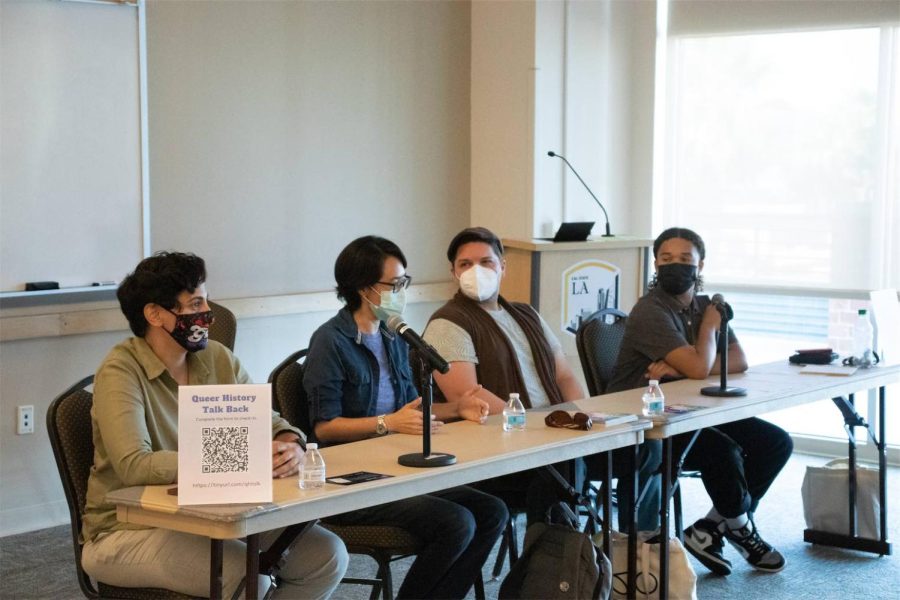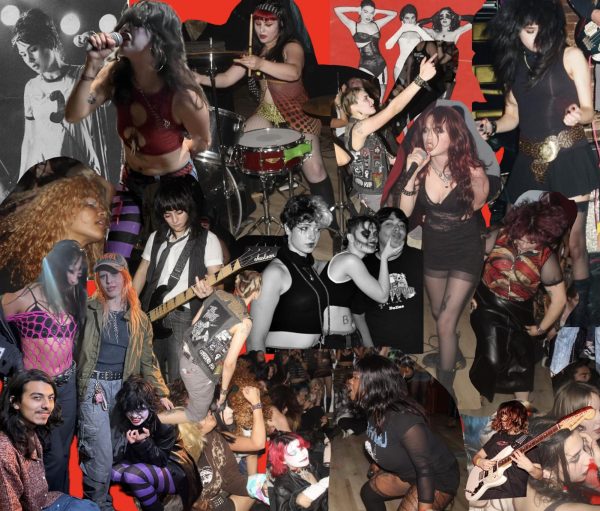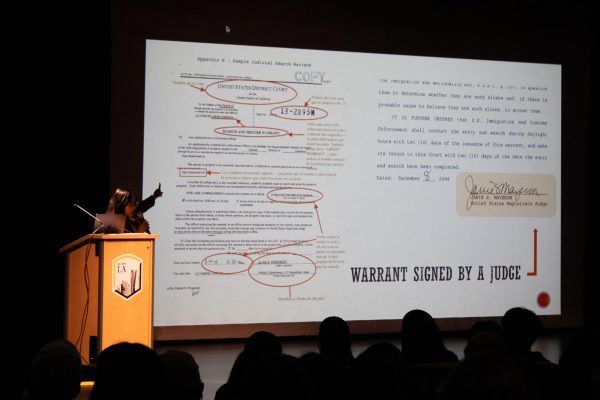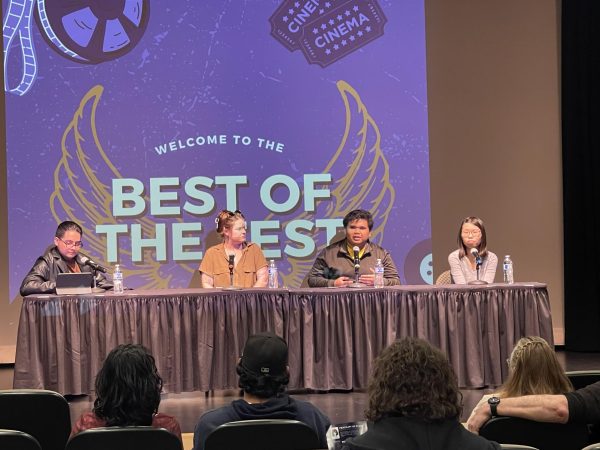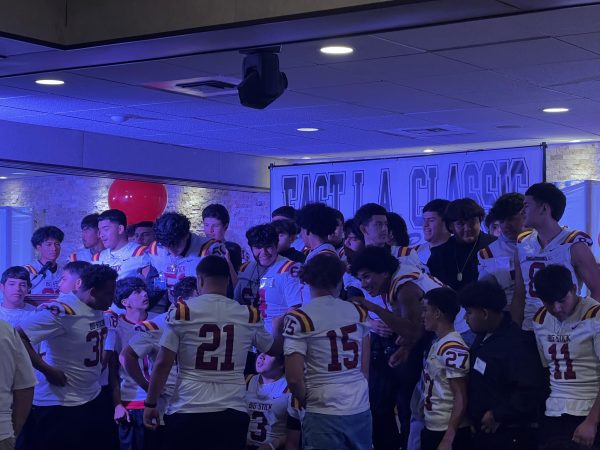Queer History Talk Back kicks off LGBT history month
Faculty panelists took time to speak to students about their own experiences and the way things have changed.
The Gender and Sexuality Resource Center (GSRC) hosted a Queer History Talk Back event early Oct., which featured three Cal State LA professors, all of whom identify in some way within the LGBTQ community.
October is LGBT History Month, and this event was to celebrate that.
Dr. Cynthia Wang from the communications department was the first to answer by sharing on how faculty struggle to find queer students to share culture and history with.
“A lot of our histories, and a lot of our spaces, due to gentrification and urbanization, have erased a lot of that history and have erased our bodies,” Wang said.
When Wang recieved the invitation for this event, it was a way for her to be more involved with the queer community on campus.
Dr. Hasmik Arakelyan from the psychology department, the second faculty member to speak, shared the sentiment as well.
“It’s so important to participate in queer events, to get to know other queer individuals on campus,” Arakelyan said.
Assistant Professor Zachary Vernon from graphic design, the final member of the panel, also emphasized community as being one of the main reasons he agreed to the panel.
“A lot of our history is love and that’s great and wonderful, but invisible and hidden,” Vernon said. “So for me, it’s about learning how to be a part of a community in the present by understanding what we’ve gone through as a community in the past.”
The conversation ranged from understanding how code worked within the queer community. Using phrases like “Are you a friend of Dorothy?” started being used as early as World War II. At the time, homosexuality was illegal in the United States. Using this phrase allowed other queer individuals to connect and find community without fear of detection from heterosexual people.
Yet community was not the only emphasis during the event. Compassion was another theme as well.
Wang remarked on how important it is to understand the intent when it comes to pronouns.
Rather than getting angry, Wang said to lead with compassion.
“When someone makes an effort, they want to learn,” Wang said. She reminded them that coming to their sexuality and gender identity was a journey; therefore, leading with kindness and compassion is vital in helping educate others about preferred pronouns.
Panel moderator Ashley Gregory, a fourth-year history major, works at the GSRC.
Gregory arrived at Cal State LA in the Fall of 2019, just a few months before the COVID-19 pandemic would make her college career remote.
“I had just started transitioning,” Gregory said. “I am [male to female]. I’ve been transitioning for the last three years. When I first came to this space, I was kind of raw; I had experienced a lot of bullying in high school just from being queer.”
Gregory said that the GSRC gave her the comfort to be herself, something that she hoped the event did for others.
“If I can give that back to other people, that’s all I really want to do,” Gregory said. “Whether that happens through events, like our history panel we had today, or just hanging out in the space we have. Whatever way that comes, it makes me happy.”
For Dayna Hewlett, a fourth-year business major, she felt that “it is important to have queer voices spread throughout the campus.”
Hewlett said she was not knowledgeable about queer history, but this event gave her “a little bit more perspective.”
The GSRC also gave Hewlett her sense of community at Cal State LA.
“I feel I gained a lot of friends,” Hewlett said. “I’ve gained a lot of confidence. I’ve gained these people that I share a lot of time with. I go there every day, basically. So yeah, I found my people.”
For other students, the event gave them the opportunity to explore different aspects of their personal sexuality. This was the case for Stephanie Espinosa, a music education major.
Espinosa said it’s been unclear where she stands with her sexuality.
“I feel like this event mostly was just kind of dipping my toe in,” Espinosa said.
She said she wanted to see if there was something more she resonated with at this event to help her understand further.
Kristy Pacheco, a commercial music major, attended the event with Espinoza.
Pacheco, who uses she and they pronouns, said they would not have been as likely to attend this in high school.
“I was still struggling to accept myself,” Pacheco said. “I was surrounded by a lot of heterosexual norms and heteronormativity, especially where I used to live. So it wasn’t talked about much. Even if there were a few queer people, they were pretty much outcasts.”
The main takeaway for them, though, was “recognizing how far we have come from the past.”
“It’s always good to look at the past, even though it’s uncomfortable, just so you can see we’ve made this much progress,” Pacheco said. “Just to even be able to sit in this room with a bunch of queer people, in this space, talk about these things, makes me reflect on my own history.”
The event is just one of many events the GSRC is hosting for LGBT History Month. For more information, visit the GSRC in the U-SU to find out about what other programs and events are upcoming.
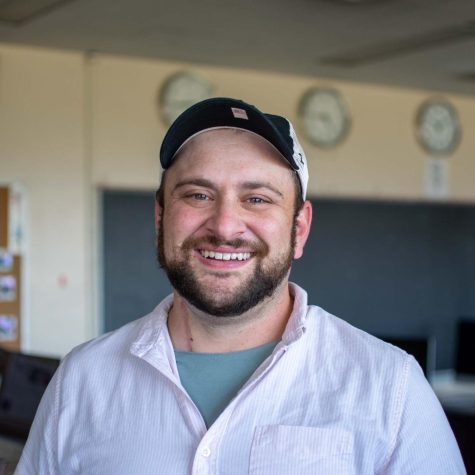
Will Baker is in his final year of undergraduate at Cal State LA studying film production and minoring in entertainment marketing. He is the multimedia...

